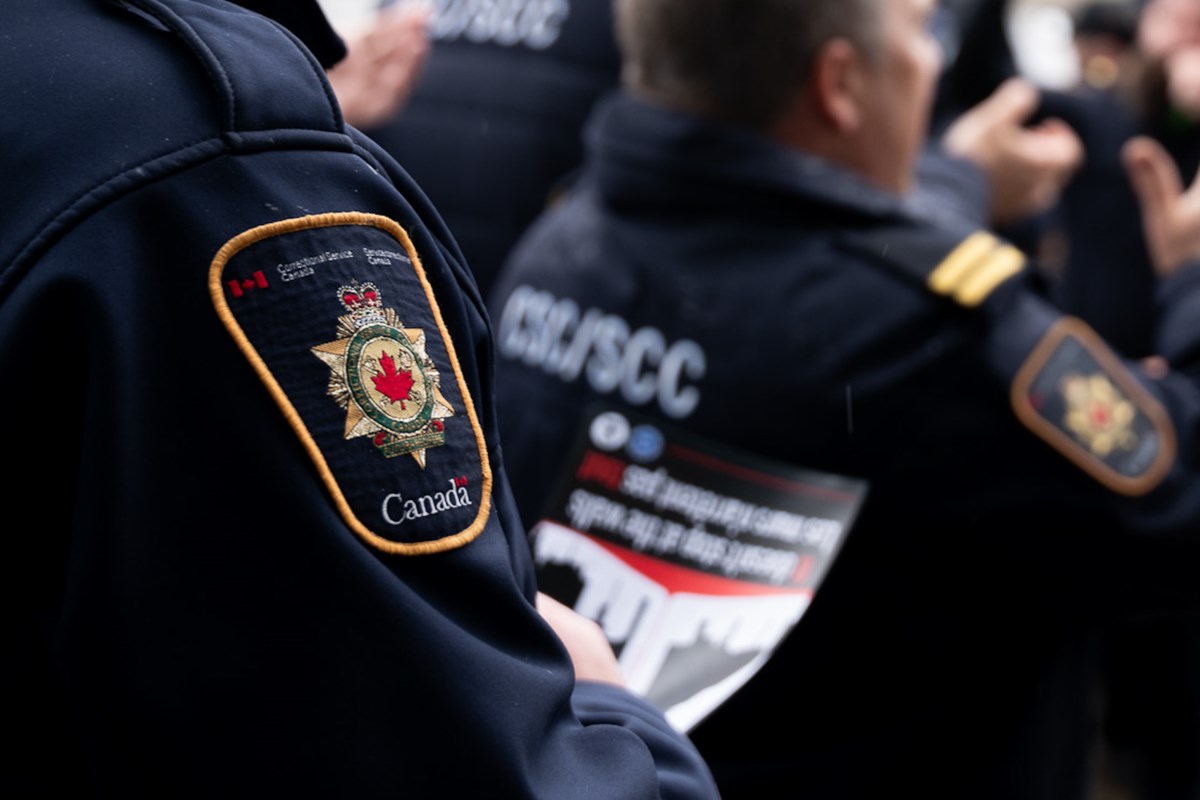
What Will Be In HBO’s Adnan Syed Docuseries Follow-Up? Director Amy Berg Explains
After director Amy Berg premiered her 2019 docuseries The Case Against Adnan Syed on HBO, she says “it was really difficult for me to let go.”
The four-part series probed further into a story that rocketed to fame after it was chronicled on the Serial podcast a few years earlier, about Baltimore County teenager Adnan Syed’s 2000 conviction in the murder of his ex-girlfriend Hae Min Lee. While Serial cast doubt on prosecutors’ original case against Syed and Berg’s film uncovered further cause for concern, two days before Berg’s series aired, the Maryland Court of Appeals denied Syed a new trial. “It just felt like the most unsatisfying ending of any film I’ve ever made,” Berg says.
Related Stories
Now, Berg has the chance to film a new ending to the series. On Tuesday, prosecutors dropped charges against Syed in the 1999 murder of Lee, citing results from DNA testing, after a judge vacated Syed’s conviction in September. For the first time in over two decades, Syed is a free man, and Berg has been around to film the turn of events. As HBO announced in September, Berg has been filming a follow-up episode to the series since early 2021 with “exclusive access” to Syed; she was tweeting pictures from the Baltimore courthouse on the day when his conviction was vacated and was also filming on Tuesday, after receiving an early tip about the news.
On Thursday, Berg spoke with The Hollywood Reporter about where The Case Against Adnan Syed will pick up when the new episode premieres in 2023, what it’s like filming in person with Syed (rather than interviewing him over the phone, as she did in prior episodes) and how Berg reacted to some evidence uncovered in The Case Against Adnan Syed appearing in court.
First of all, how did you respond to the news on Tuesday that all charges against Adnan Syed were dropped and were you filming?
Yeah, we were on the ground from kind of the crack of dawn. We had a tip about this happening so we were able to document that from the inside, which was incredible. It was an exciting moment just to see that Adnan was finally free-free, like his bracelet is off and everything right now, but it was hard to match the high of three weeks ago, just seeing him walk out of the courtroom.
Where were you filming on Tuesday?
I don’t think I can say where I was, but we have very inside access and we were filming the whole thing as it was unfolding from multiple perspectives.
Going back three weeks, you were at the courthouse when Syed’s conviction was vacated. What was that moment like and were you able to film it for the documentary follow-up?
Well, one of the strange and frustrating things about the state of Maryland is that they do not allow cameras in the courtroom ever, so that’s been a challenge for us this entire period of making this documentary. Because there have been multiple hearings and things that we would have loved to be able to show you in real time. But I have been actually working on this follow-up pretty much since the last episode aired. We’ve been documenting everything leading up to this point, so we expected that to happen, we didn’t know exactly when it was going to happen, but we did expect that to happen. We didn’t expect it to happen quite that quickly. And it was when [Baltimore City State’s Attorney] Marilyn Mosby decided to file the vacatur, it happened within three days that he was out, so it was pretty incredible to watch how quickly the system works when the wrong person is convicted.
The announcement of the follow-up episode to The Case Against Adnan Syed stated that you have been filming it since 2021. What was it about 2021 that prompted you to pick up the camera again?
Well, Adnan got a new attorney, Erica Suter, who right around the same time was also named the head of the Innocence Project in Baltimore. And she was taking a very different approach than his prior attorney and just really digging into the case. And simultaneously, when the [Court of Appeals] ruled against Adnan getting a new trial after he had won those two other hearings — the Circuit Court and this Court of [Special] Appeals had both granted him a new trial — at that point, his case went from being under the [jurisdiction] of [Maryland Attorney General] Brian Frosh and [former Deputy Attorney General] Thiru Vignarajah at the Attorney General’s office to the [Baltimore] City State’s Attorney’s office. And that is where things started to get very interesting for a lot of people that were wrongfully convicted in Baltimore because Marilyn Mosby began looking at a lot of old cases. And she’s exonerated 13 men who were wrongfully convicted in the past few years. So once he had different eyes on his case, there was a new avenue for his case to be heard. And they looked at the case and saw a lot of problems with it and they started looking at alternate suspects and they filed jointly with Adnan’s attorney a petition to test all of the DNA, which hadn’t been done before. So things were moving in the right direction right away, as soon as Erica started speaking with the SRU [Sentencing Review Unit], Becky Feldman and Marilyn Mosby’s department.
Your original series drew upon sources including Syed, his family, his Woodlawn High School classmates, police investigators and others. Can you say anything about who will be participating in the follow-up episode?
The follow-up will probably be more centered around what’s going on right now, so it will be more Erica, who’s the new attorney, Marilyn Mosby, the City State’s Attorney, and then his family and close associates like Rabia, obviously, so it will be much more intimate.
I’m guessing that Hae Min Lee’s family also won’t participate in this follow-up episode?
Yeah, I don’t think so. It’s really unfortunate that they are having to take this ride with Brian Frosh and Thiru Vignarajah. Did you hear the vacatur hearing, by chance?
No, I did not.
What happened that day was the hearing was set and there were conversations that had been had between the City State’s Attorney’s office and Hae Min Lee’s family. There was a lot of back and forth over how much notice they were given, and whether they were going to make a statement, they had the right to make a statement. So eventually after their attorney was heard, we took a recess and then Hae Min Lee’s brother, Young Lee, spoke on the Zoom at the hearing. He said something that really struck me: He said that the state had always been on his side and now they’re on Adnan’s side. Which just tells you a lot about the relationship between the state and the Lee family and what they’ve been telling them. Because the state is supposed to be on the side of justice and if there was a wrongful conviction, or if the wrong person was convicted of murdering Hae Min Lee, then justice needs to still be done. So that is my way of saying that I don’t think we will be able to speak with them. Of course, we’ll reach out to them again, but I think they just really feel that Adnan did it based on whatever they’ve been told for all these 23 years. Despite all the new evidence that we discovered when I was making the film, which was actually referenced in the vacatur hearing — they referenced two pieces of evidence that came from our film as evidence of Adnan’s innocence.
What were those two pieces of evidence?
The two main pieces of evidence that they spoke about were the Kristi Vincent story about being at the house on the night of the 13th even though she didn’t actually know what night it was, but the police told her it was the 13th. We were able to discover her school records and she was in a class that night. And the evidence that the car could not have been parked in the lot for that entire time [was] based on the interviews we did. And they also referenced the Jay Wilds discrepancies, which were not just in our film, but in every interview that he did, his story has changed a little bit. But when we were filming, he told Nikisha, his former [girlfriend], that he just told the police what they wanted to hear so he could get out of this. So that was like the third thing they referenced, actually. So that was quite satisfying for me.
Will you be filming Syed in person for this follow-up episode? Obviously in previous episodes, Syed’s contributions were over the phone.
Yeah, we’ve already filmed him in person quite a bit and we are continuing to document Adnan.
How does that change the series or change the experience for you?
That’s a great question. Instantly, it felt normal but, yes, it’s such a change to see him dealing with everyday life and sending me funny texts and just talking on the phone whenever. You know, I can call him now; I never could call him before, I had to wait for him to call me. So it’s just really nice. And seeing him with his family, it’s so beautiful. His mom has, like, a new lease on life, her spirit is elevated, and you can just see how much loss there was in the family and how much they have to experience together now in the future.
As you said, prosecutors have said that there are two alternate suspects that have emerged in their investigation of Hae Min Lee’s death, as well as additional evidence that prosecutors didn’t reveal to Syed’s lawyers initially. Will you be focusing at all on potential other suspects or additional evidence in your follow-up to the series?
Definitely, definitely. One of those suspects was charged about a year and a half ago with assault, which was another thing that pushed us into the follow-up, so we’re going to be following that story as it unfolds.
What’s next for Syed, to your knowledge?
I think he’s just taking one day at a time. He’s been participating in this Georgetown University program [Georgetown College’s Bachelor of Liberal Arts program for incarcerated students] since he was in prison for the past I guess year and a half or so, so he’s doing really well with that and he’s just being with his loved ones. I mean, he’s only two days into freedom. When he was released, he was under house arrest so he was just enjoying a very simple life. I think it’s kind of a nice transition for him, now that he’s had that time to just adapt. So I’m not sure what exactly we’ll see with him over the coming months and years, but I’m very interested to see what it is.
Is there anything else you want to add about this case or your follow-up episode?
We’re still in the early days of it, but we’ll hopefully have something finished by the end of the year. I will say that of all the films that I’ve made, this film, I loved making it, and I was really, really attached to it all the way through the production process. But when the [Court of Appeals] denied Adnan a new trial like two nights before our film series aired [originally, in 2019], it just felt like the most unsatisfying ending of any film I’ve ever made. So it was really difficult for me to let go of this one because it had such a wrong ending, because we has assumed that he would get a new trial for like two years of the four-year production based on what was happening in the legal system. So it’s just really nice to see that we’ll get to have the proper ending for this show and Adnan can go live his life as a free man.
This interview has been edited for length and clarity.




.png)























































